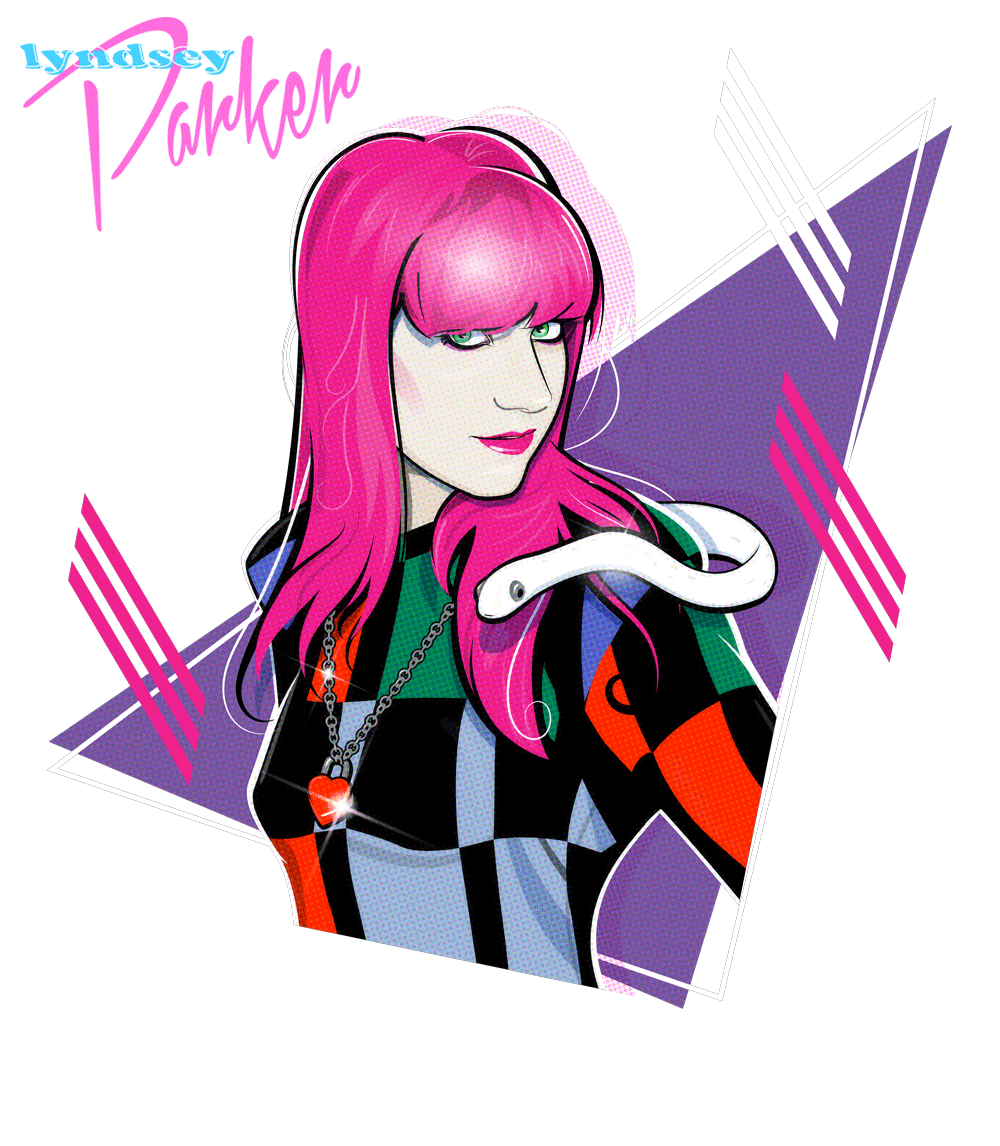When Ruby Friedman formed her Ruby Friedman Orchestra in 2009, the UCLA-educated history major had a grand vision for the project. “I was taking Intellectual History and tripping out. I think [I was reading] Thoreau, and he was basically talking about history and questioning why you would even spend your time studying it, because you’re almost ‘wasting’ your time because you’re ‘wasting’ your present. And then all of a sudden, I saw this band in the future,” she says, sitting at Studio City’s Licorice Pizza Records before performing songs from RFO’s latest release, Chimes After Midnight, for a delighted matinee instore crowd. “It was almost like a carnival troupe, just in this kind of post-apocalyptic setting. And all they were interested in was doing music from the 20th century, and they got it wrong. I just was like, ‘Whoa, I wonder what that would sound like?’”
Friedman, of course, got it very, very right, and Chimes After Midnight — a collaboration with Portland multi-instrumentalist Ben Landsverk, and her first full-length LP since 2016 — might be her most ambitious effort yet. It certainly proves that studying history is not a waste of time, as she mines the true stories of “remarkable people who time will erase otherwise… invisible women, or women made invisible who were trying to be seen and heard” for inspiration.
The impetus for Chimes After Midnight came when Friedman “went down an Emily Longstreth rabbit hole” after she saw the forgotten Pretty in Pink actress’s audition reel on Facebook and wondered whatever happened to Longstreth. Emily became the subject of second verse of “When the Hangman…,” and that “pretty much started album — that concept of somebody just disappearing, having so much talent and impacting so many people.”
Elsewhere on Chimes After Midnight, on “Honeystomach,” Friedman wrote about Connie Converse, “a folk singer that predates Bob Dylan and should be attributed as the first intimate folk singer-songwriter, but when she went to New York to showcase what she was doing, nobody was interested. We can kind of speculate as to why that is, but ultimately, she disappeared. She literally disappeared. She intended to disappear, and in the song she disappeared because an alien craft called the Honeystomach comes and takes her into their solar system, where she has tons of fans.”
“Music Row” is another Chimes After Midnight highlight, and it has nothing to with Nashville’s mainsteam music industry. “We played Nashville last week, and I was introducing the song and I said, ‘Do you guys know which city in the United States was the first city to legalize prostitution?’ And no one knew. … But it was actually Nashville. So, it’s like the history itself was completely erased. But yeah, during the Civil War, prostitution was legalized for about two years to better regulate diseases that were spreading among the soldiers. They tried to get rid of the girls. They put them on a boat called the Idaho. ‘I-D-A-H-O-E!’ … But they had to bring [the sex workers] home, because none of the ports would let them get off the boat, so they brought them back to Music Row. So, that song basically memorializes these women. They were widowed. Their husbands were soldiers that were killed in the war, or their fathers, whatever. Their families were decimated. It’s just one of those interesting things. It’s peculiar.”
Some of Chimes After Midnight’s songs were inspired by real-life people from Friedman’s own not-too-distant past, like “The Mayor of North Hollywood Park,” which is about her friend Greg Sill, a successful music supervisor that championed her music but “was an addict, untreated, and he died homeless in a park.” And then there’s “Flower Whore,” about her former co-worker at a flower market, who was also an addict. “She was really out-of-it, and she would just start mumbling and I would write everything down. I did tell her, ‘This is going to be in a song. I hope you don’t mind.’ She’s OK now… but at the time I was working there, I really did think we were going to end up with an OD. We had Narcan in the drawer.”
“Milky Way (Ode to Frank Black)” isn’t specifically about the Pixies frontman, who Friedman has never met, but she explains, “I feel like I know him and I’m so grateful for him, and that’s what the song is basically about… basically about how in a sea of just gross people and gross art and gross music or whatever: ‘Oh, there’s Frank Black!’ It was just a gratitude response that he even exists, after I had a dinner with a music executive that slobbered all over me.”
Friedman, who grew up in Los Angeles, says experiences with lecherous, predatory male music execs have unfortunately “happened a lot” in her life, which is one of the reasons why she moved to Portland, where she met Landsverk. “I don’t live in L.A. anymore, so it doesn’t happen anymore!” And she’s happy to be an indie artist, now signed to Label 51 Recordings. “I don’t think I’m ever what [major labels] want, because I just have a mouth on me,” she smirks.
Thankfully, Friedman is using her multi-octave mouth to give voice to voiceless people of the past, present, and her own vision of the future. “I like old clothes. I like old facts. I just like old things. I like to search for truth. And really, do we need another love song?” she says of her unique viewpoint. She admits that sometimes making music can be a grueling process, but it’s a calling and a duty that Friedman, whose mother was also an artist and musician, simply cannot ignore.
“I’ve tried [other careers], and [music] just hunts me down. It hunts me down. I’ve tried to get rid of music,” she semi-jokes. “I don’t really want to write. I’m here against my will. I’m totally held hostage by being an artist. I only write when I’m forced to write — like, I have to. I’m internally forced to write, to get it out. … I write what moves me to write.”
Check out Friedman and Landsverk’s interview at L.A.’s Licorice Pizza Records in the video above.







